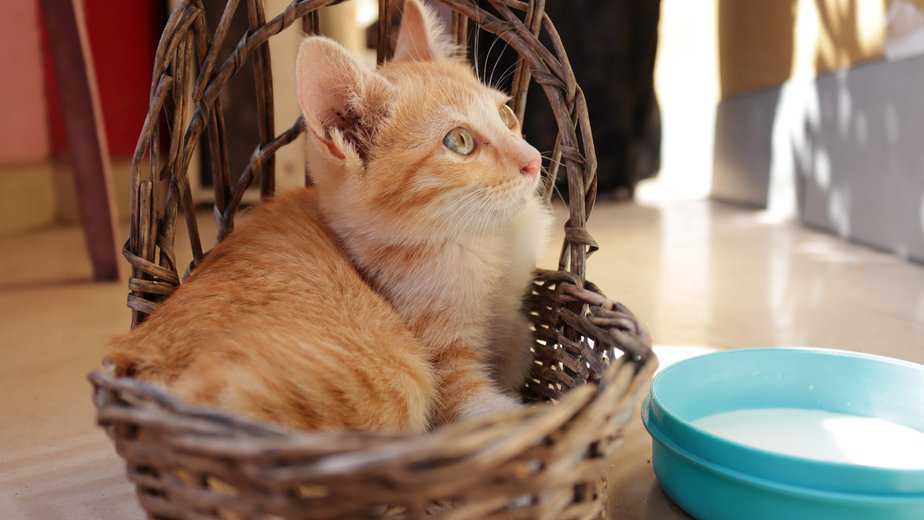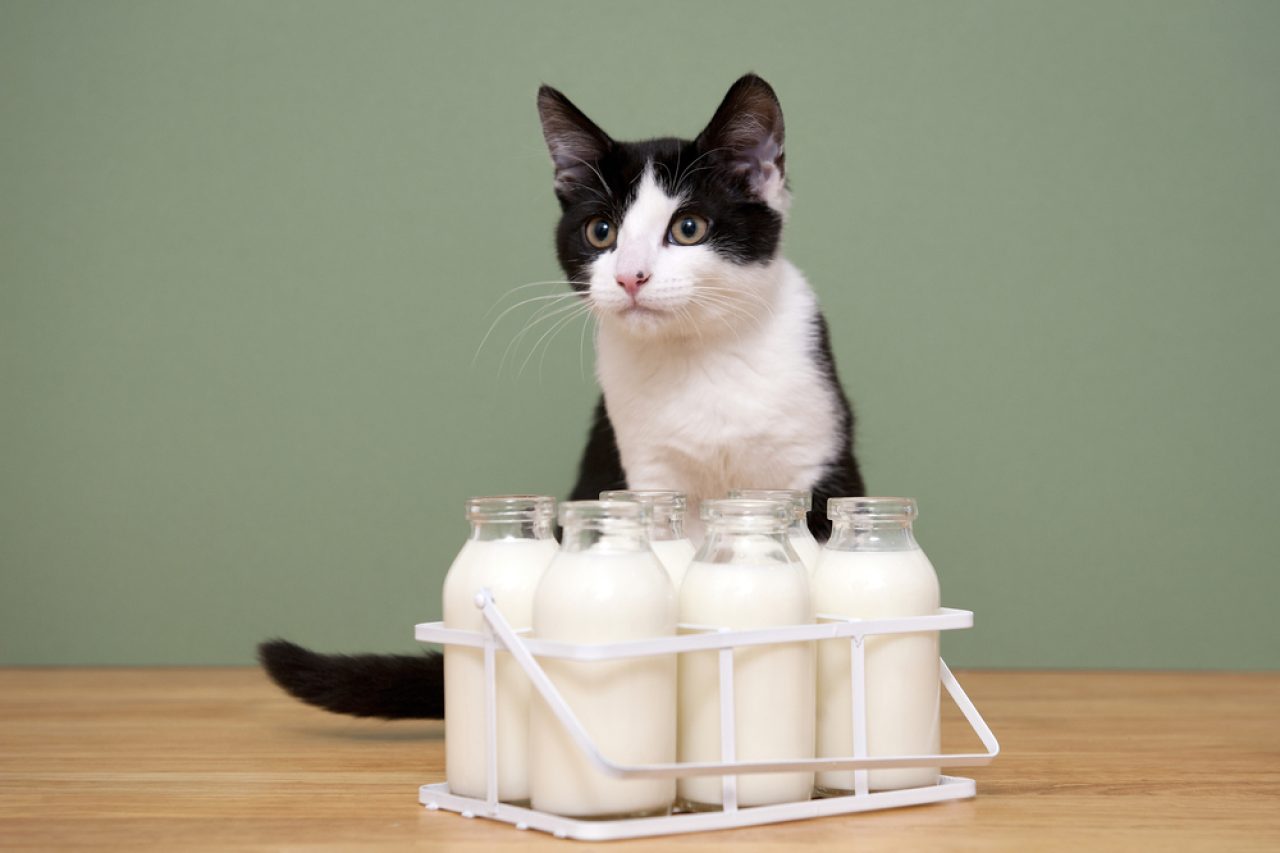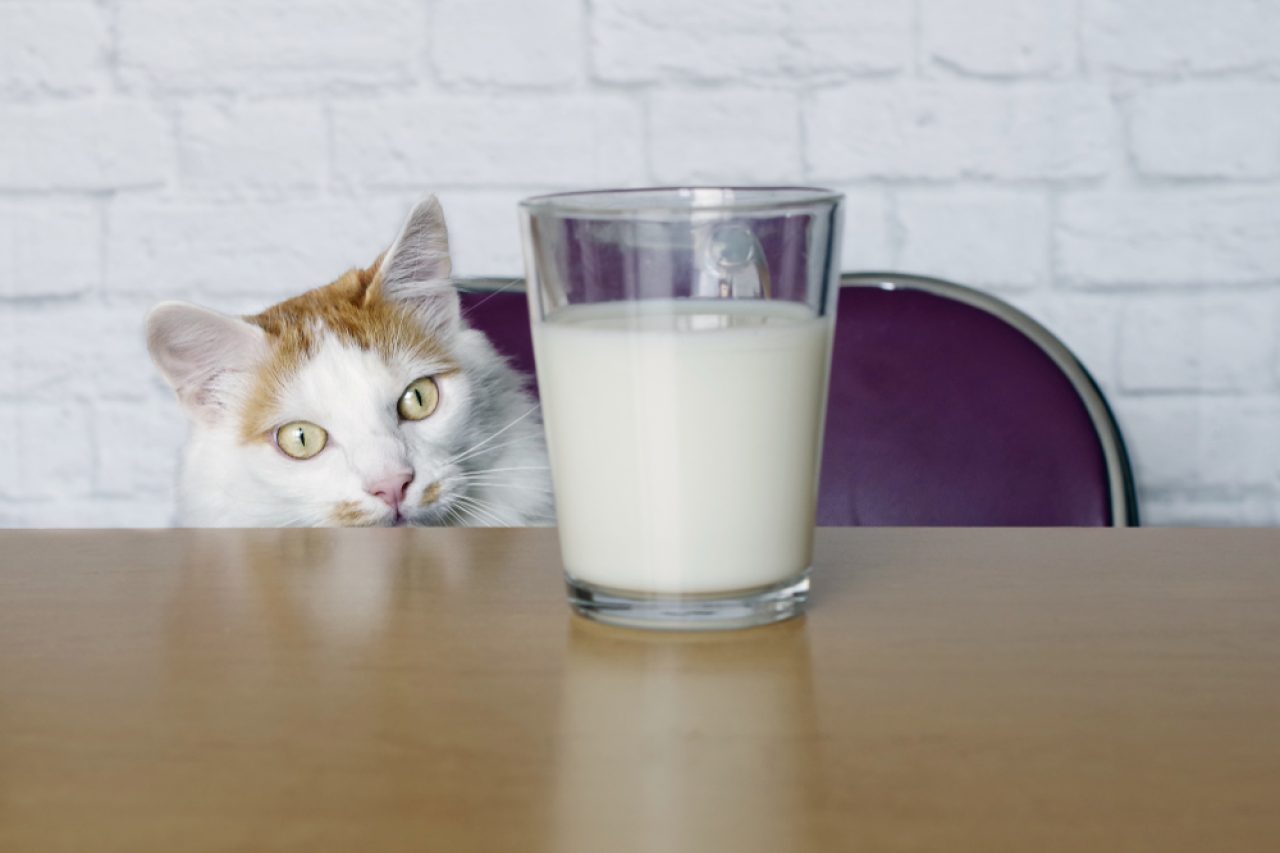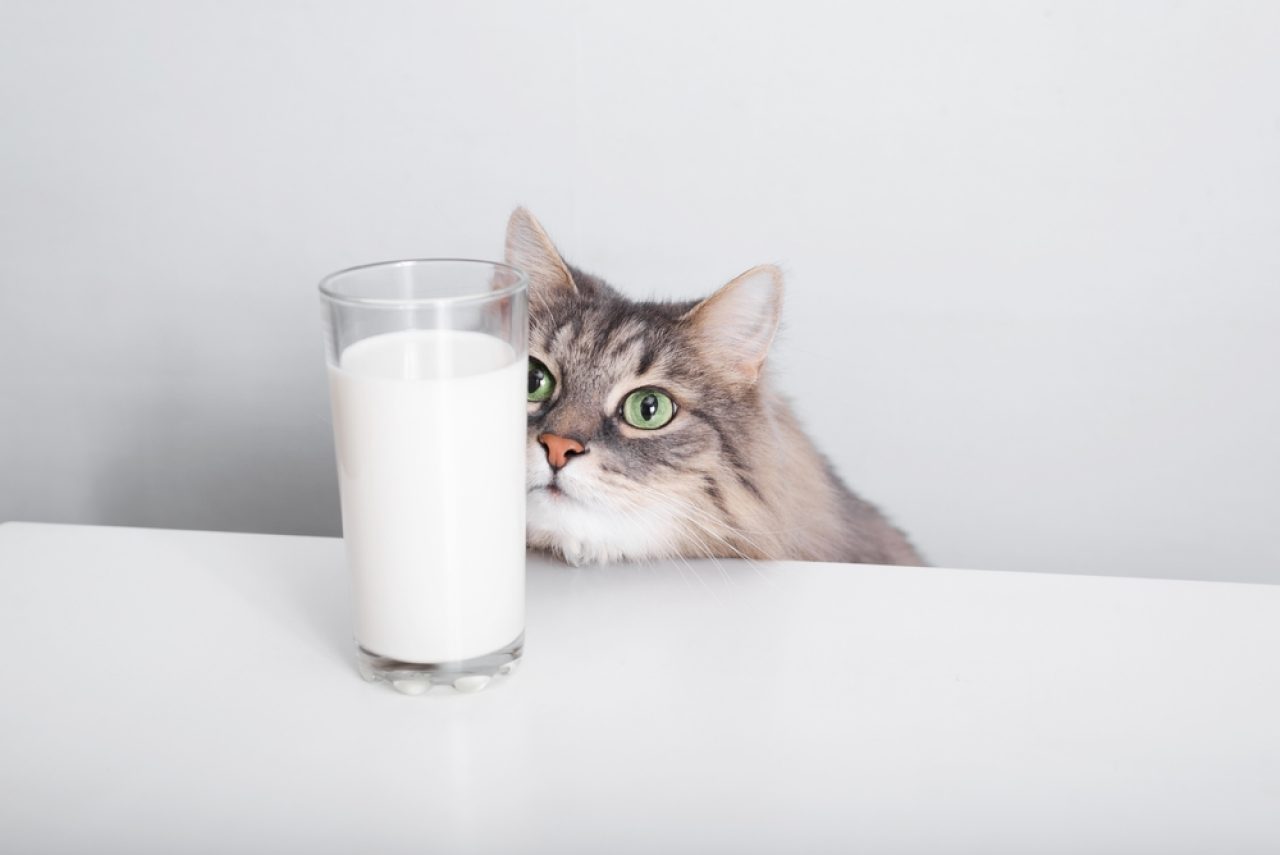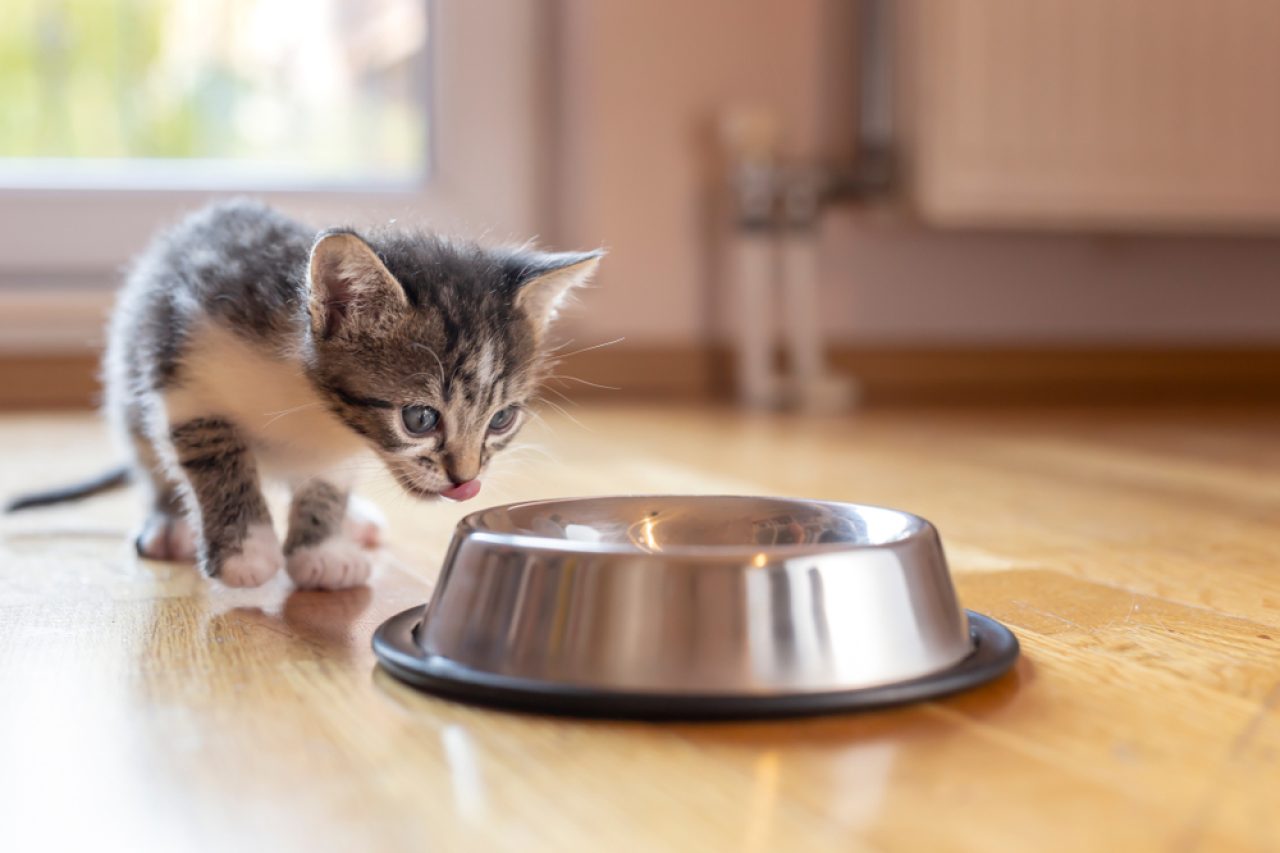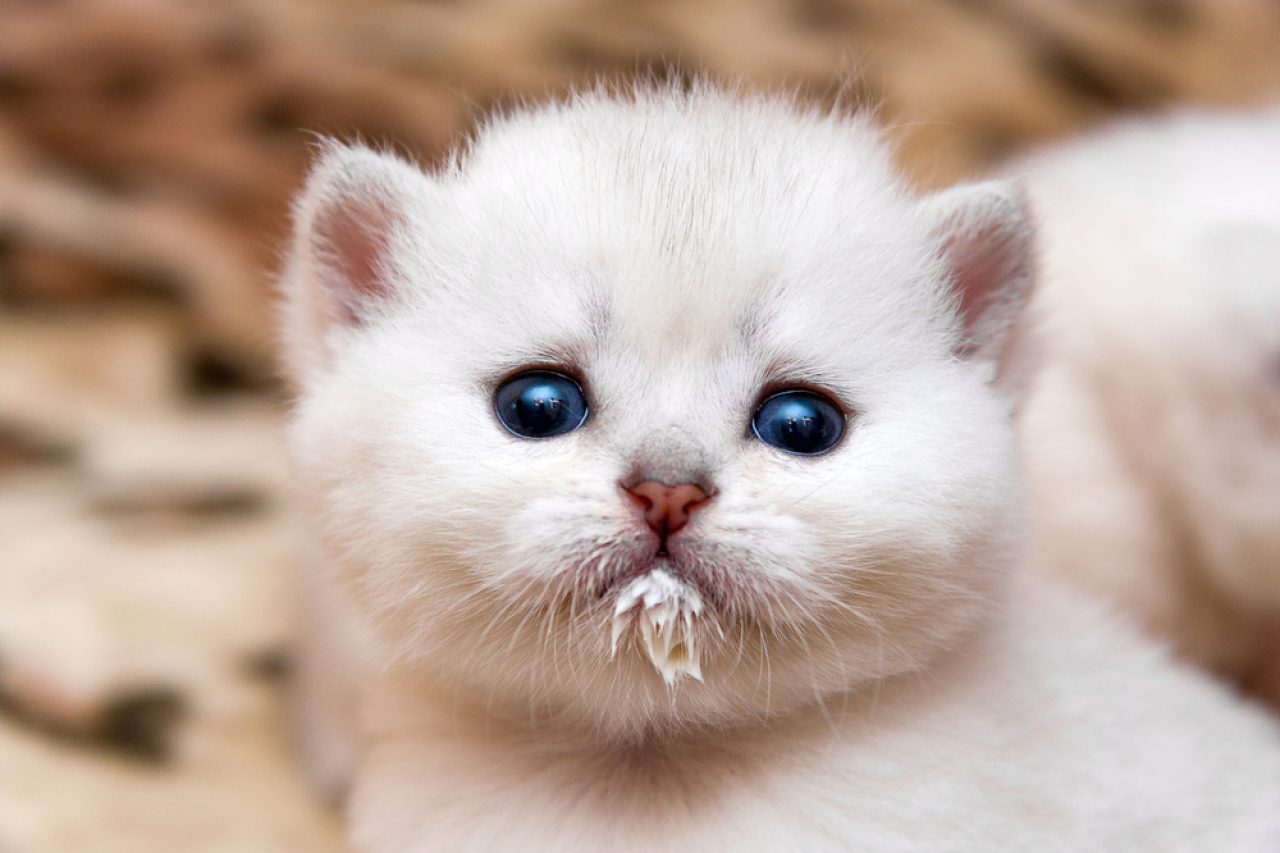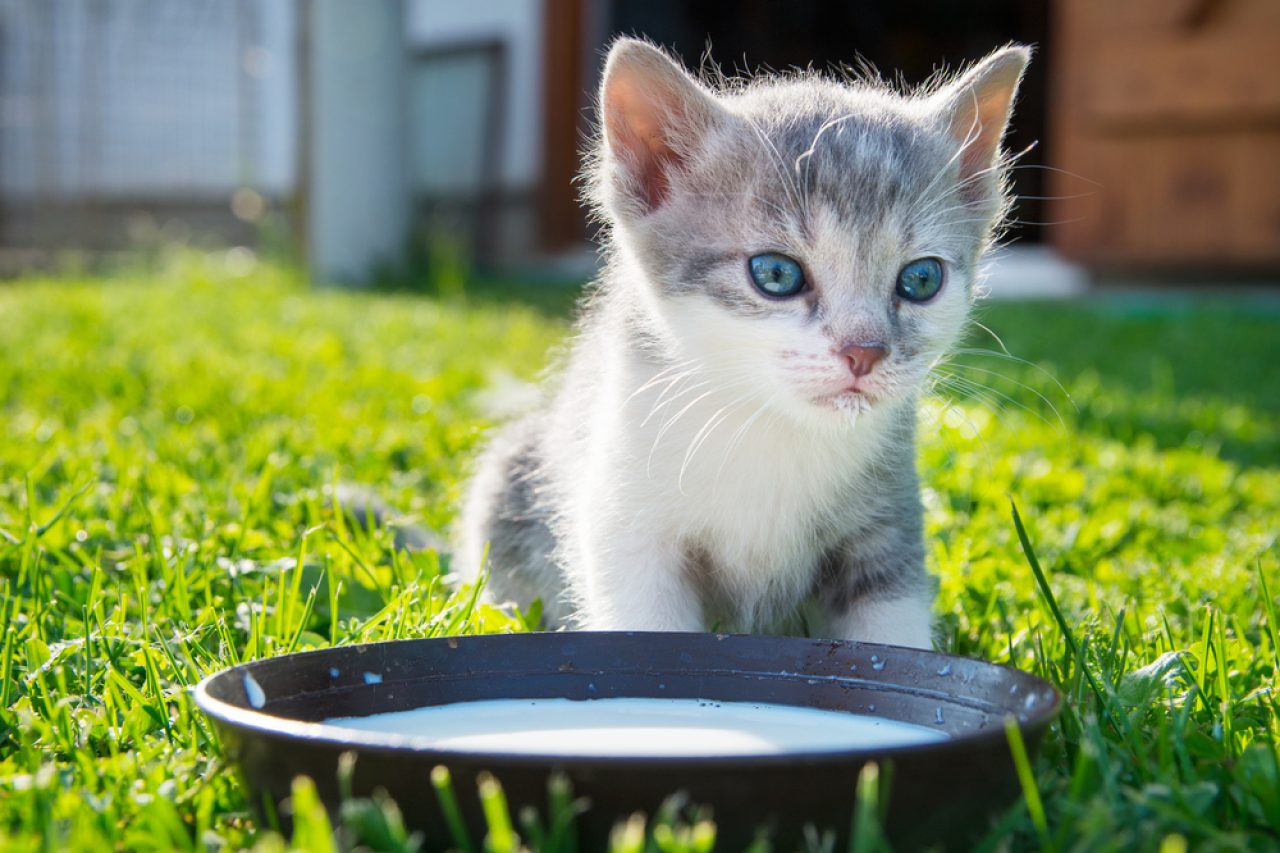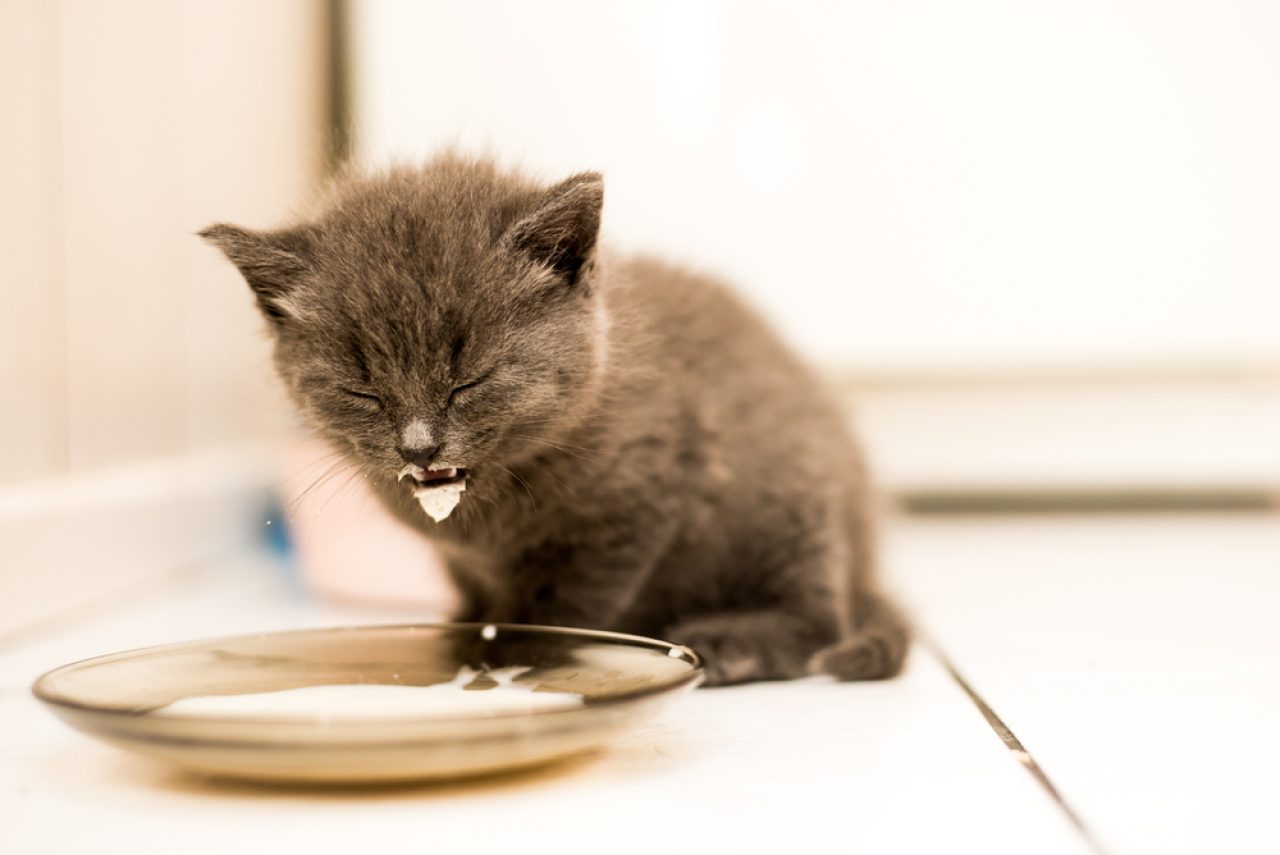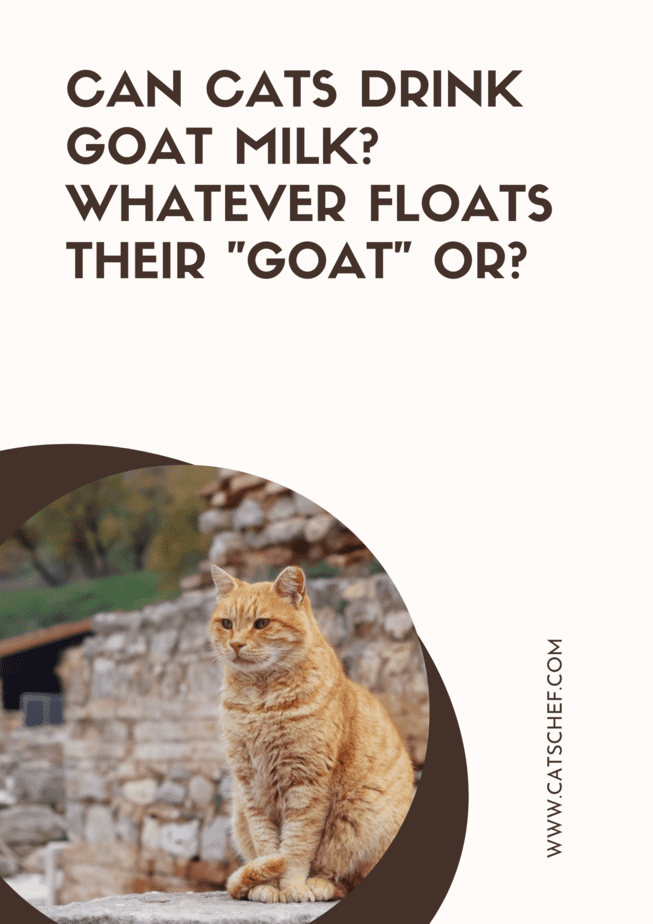📖 Table of Content:
“Can cats drink goat milk?”, you think to yourself as you’re sensing your four-legged friend’s eyes on your beverage. “Can goat milk make my cat really, really sick?!”, you wonder as you’re taking another gulp and considering whether or not you should share.
Worry not, you’re not the only one. Pet parents around the world battle their precious pet’s meows and purrs whenever they’re looking for a pick-me-up. Our purr machines can be such divas demanding to be fed only the crème de la crème of cat foods and cat treats – and then they go and do something like this.
Why would they want to drink goat milk when they can drink… anything else? Cats are curious creatures and they LOVE sniffing around, looking for trouble, and stumbling upon YOU munching on something they haven’t seen before. “Let me have a lick or I’ll call the pawlice!”, she meows at you.
“What do I do now? Argh, can cats even drink goat milk?!” Our friends over at the ASPCA (American Society for the Prevention of Cruelty to Animals) don’t recommend feeding goat milk to your cat. That’s not to say that goat milk’s poisonous to cats, because it’s not.
But, goat milk does contain a couple of things that can make your cat’s stomach produce sounds you’ve never heard before. So, before the two of you head off to the nearest farm to get yourselves a pint of goat milk, take a look at some of the ramifications of feeding goat milk to your cat.
What’s the deal with cats and milk?
Oh, you’ve never witnessed a more complicated relationship than this one! And, it started when you were much, much younger than you are now.
You’ve seen Tom (from Tom and Jerry) drink milk pretty much every single day. Then, you’ve witnessed Garfiled’s obsession with lasagna loaded with heavy cream and cheese.
And then, you’ve seen a bunch of other cats drinking milk and eating cheese on Disney Channel and Nickelodeon shows (let’s not forget about the movies!). So, you’ve grown up thinking that cats NEED to drink milk to be happy and healthy… But, you’ve grown up believing a complete myth.
Cats are actually lactose intolerant! While they’re little kittens, they can drink their mother’s milk; because this milk has everything they need to grow bigger and stronger. But, once they wean off of their mother’s milk, they no longer need the same nutrients.
They start craving something a bit more… meatier. Cats are carnivores which means they need a bunch of meat, animal protein, and animal nutrients to survive and thrive (when they’re older). They don’t need fruits, veggies, and whole grains the same way their humans do.
They don’t even possess the digestive enzymes necessary to break down and process most things their humans eat (and drink) on a regular. And that’s what happens with this whole “cats and milk” thing – as they grow up they slowly lose the lactase enzyme that’s necessary to break down lactose.
As a result, they get really bad stomachaches and digestive problems whenever they eat (or overeat) something with lactose. And, as you might have guessed already, goat milk does contain a little bit of lactose that could send your little furry friend running to her litterbox. “So, cats can’t drink goat milk?”
Can cats drink goat milk?
Cats can technically drink goat milk. But, that’s not your cue to let your little feline friend scoff down an entire pint of goat milk. Goat milk (or even cow milk) isn’t recommended for feline consumption because of the lactose. It can cause a bunch of digestive problems.
But, we can’t forget that not every cat out there has a sensitive stomach. Some cats can have a little bit of lactose every now and then without experiencing any adverse reactions. On the other hand, some cats can have a lick and end up at the emergency animal center (you might want to check for allergies!).
Don’t forget – you can always consult with your vet before giving your feline anything out of the ordinary. You can never be completely sure whether she’s developed sensitivities or allergies with time.
Also, you can never be 100% positive her general condition allows her to indulge in something as fattening and lactose-packed as goat milk.
On the other hand, there’s a pawsibility that your cat can reap some benefits from drinking goat milk. Goat milk doesn’t come without a bunch of nutritional and health advantages for both humans and their curious companions.
Throw a glance at some of the most common benefits and drawbacks of feeding goat milk to your cat, and draw your own conclusions. Can cats drink goat milk safely? Can goat milk replace other sources of hydration for your cat? And can goat milk become a staple on your (and your cat’s) groceries list?
What’s good about feeding goat milk to your cat?
Where do we even start? We’re pretty sure you’re aware of the amazing nutritional and health benefits goat milk brings to humans. After all, humans are the ones that made goat milk popular because they couldn’t stop putting it into pretty much everything.
Apart from beaming with protein, vitamins, and minerals – which is a perk on its own – goat milk doesn’t come without prebiotics and probiotics. These are responsible for your (and your cat’s) digestive health. And let’s not forget about the fact that goat milk possesses considerably less lactose than cow milk.
Cats can drink goat milk (especially cats that don’t have sensitive stomachs) to a greater extent than they can drink cow milk. Don’t get me wrong, the risks of contracting digestive problems are there. But, they’re pretty minuscule when compared to other types of milk.
1. Vitamins and minerals
Who’s surprised that goat milk’s a nutritional powerhouse?! Filled to the brim with vitamins A, E, C, B, D, folate, phosphorous, calcium, thiamine, riboflavin, and niacin – goat milk can do it all!
Boost your cat’s immune system, maintain the health of her digestive system, and ensure the function of her nervous system.
Starting from the top, vitamin A’s one of those essential vitamins that play a HUGE role in your cat’s body. This vitamin’s responsible for keeping her eyes, skin, and hair healthy (looking like one of those Victoria’s Secret models!).
Vitamins B (B5 and B12) are responsible for synthesizing fatty acids, hemoglobin, and vitamin D.
Calcium and phosphorous are super important to your cat’s health for several reasons – avoiding deficiency being one of the most critical ones. Calcium and phosphorous deficiencies happen when your cat doesn’t have enough of these minerals in her system.
And you have to find a way to replenish them – aka goat milk. Mineral deficiencies can lead to symptoms such as weakness, depression, anemia, muscle twitching, tremors, and rickets (soft and deformed bones). “Share that glass of goat milk with me right MEOW!”
2. Prebiotics and probiotics
These two things are a LIFE-SAVER when we’re talking about cats with digestive problems. They’re great even for healthy cats because they can prevent the problem before problems occur. But, what even are prebiotics and probiotics?
To make a VERY complicated thing sound less complicated – probiotics are friendly bacteria that can improve your cat’s stomach health. Prebiotics are the things that feed the friendly bacteria residing in your cat’s stomach.
Actually, more times than not you would have to get each of them separately depending on your cat’s needs. But, what makes goat milk special and beneficial seems to be the fact that you can get both from one source. Don’t forget, though – always consult with your vet before feeding your cat anything new.
What’s bad about feeding goat milk to your cat?
Vitamins, minerals, prebiotics, and probiotics aside (that’s quite an impressive list, though). Goat milk doesn’t come without a big but hanging in the air. There’s always a but when we’re talking about feeding your four-legged friend anything that’s not supposed to be a part of her diet.
Each animal seems to be on board when it comes to one thing. They only truly need their mother’s milk while they’re young.
The moment that they grow up, they stop needing the nutrients they were getting from their mother. And (regardless of what we’ve been taught) they don’t start needing them from other animals.
Your furry friend doesn’t really need goat milk regularly. She can have a lick or two when she’s feeling curious or looking for a pick-me-up. She can even have a little bit as a treat every now and then on the off chance that she’s not THAT lactose intolerant.
Cats can drink goat milk, but who’s to say that they should? Take a look at some of the risks of feeding goat milk to your feline friend and draw your own conclusions. Are the benefits worth the risks? Are cats getting anything from goat milk that they can’t get from cat food and cat treats?
1. Lactose
Oh, the dreaded lactose! We’ve already discussed the repercussions your cat’s facing when she’s eating (or drinking) something with lactose. But, we’re glad to repeat and underline everything we’ve said because it’s THAT important.
So, say this louder for the people in the back – cats are lactose intolerant! Kittens can and should drink their mother’s milk because it contains everything they need to become stronger, healthier, and happier.
But, the moment that they get bigger they stop needing the nutrients they get from milk. Their digestive systems stop producing the lactase enzyme necessary to break down the lactose. So, in turn, they become at risk of experiencing digestive problems whenever they eat or drink something with lactose.
Goat milk does have lactose – so, your little munchkin’s pretty likely to experience stomachache, bloating, vomiting, and diarrhea after taking one too many licks. One shouldn’t cause that many problems unless she’s severely sensitive to lactose. But, it’s better to stay on the safe side.
2. Fat
Chunky cats are cute, but they’re not cute enough to ignore the health problems caused by their weight! Goat milk doesn’t come without a considerable amount of fat – especially when you’re purchasing and using organic, unprocessed goat milk.
Cats can have fat the same way they can have goat milk. A little goes a long way, and consuming excessive amounts of fat can cause weight gain, obesity, and diabetes. Not to mention the digestive problems because they’re unable to break down and process such high levels of fat.
So, make sure you keep an eye out for symptoms such as bloating, nausea, weakness, overeating, vomiting, and diarrhea. Contact your vet the moment that you start suspecting your cat’s been eating a little too much of everything (but especially goat milk!).
3. Allergies
That’s right, cats can have dairy allergies. Make sure to consult with your vet before adding anything out of the ordinary to your cat’s diet – you never know whether she’s gotten particularly sensitive to certain foods or drinks with time.
And, don’t forget that dairy allergies go hand in hand with one another. On the off chance that your cat’s already experienced allergic reactions to cow milk or other cow milk products, she’s likely to experience the same reaction to goat milk.
On the other hand, goat milk does seem to have a lower chance of causing an allergic reaction in cats than other types of milk. Cats are not used to drinking goat milk or eating goat milk products, so their digestive systems aren’t THAT likely to recognize them as a threat.
Get a green light from your vet, and you’re good to go.
Can kittens drink goat milk?
Kitten can’t have goat milk! Kind of! Here’s the thing – there’s nothing better for your little munchkin than her mother’s milk. Her mother’s milk contains everything she needs to grow bigger and stronger, and it doesn’t contain anything that could cause her an upset stomach.
Some pet parents argue that you can give goat milk to kittens once they wean off of their mother’s milk. But, who’s to say a little bit of goat milk won’t cause her severe stomach discomfort, weakness, bloating, vomiting, and diarrhea.
These symptoms can be especially tough for such a young cat, and it’s better to avoid them entirely. There are alternatives your kitten could munch on the off chance that she doesn’t want her mother’s milk (kitten formula, for example).
Can cats drink other types of milk?
That’s a really good question that requires a little bit more than a simple “yes” or “no”. Each cat comes with its own set of digestive problems or other health problems that can deter you from your wishes to explore her lactose intolerance.
Some cats aren’t THAT sensitive to lactose and they can have a little bit of goat milk, cheese, or even sour cream every now and then. Other cats are pretty sensitive to lactose and they can only have a little bit of lactose-free milk.
But, that’s not to say that they can have plant-based types of milk – because they can’t. Plant-based milk contains sweeteners, preservatives, and other ingredients that can harm your cat’s health. This goes for soy milk, coconut milk, oat milk, or almond milk.
The final verdict – your four-legged friend doesn’t need milk in her diet (unless it’s her mother’s milk). With a green light from your vet, you can experiment with a couple of options. But, make sure you’re keeping an eye out for symptoms of digestive discomfort.
Can cats drink goat milk, then?
As a pet parent, we’re pretty sure you’re aware that cats shouldn’t really eat everything they can get their paws on. And, they shouldn’t really drink everything they can find on the kitchen counter. Or on the living room table, because their parents forgot to pay attention.
Cats can drink goat milk but that doesn’t mean that they should. Your four-legged friend can have a lick or two without experiencing adverse reactions or ending up at the emergency animal center. Your four-legged friend can also go her entire life without having a single lick of goat milk.
Consult with your vet and check whether she’s lactose intolerant or allergic to goat milk. Never feed goat milk (or anything for that matter) to your cat without extensive research. You know how they say, “better safe than sorry.”
Related post: Can Cats Drink Chocolate Milk? Are They Allowed To Take A Sip?
